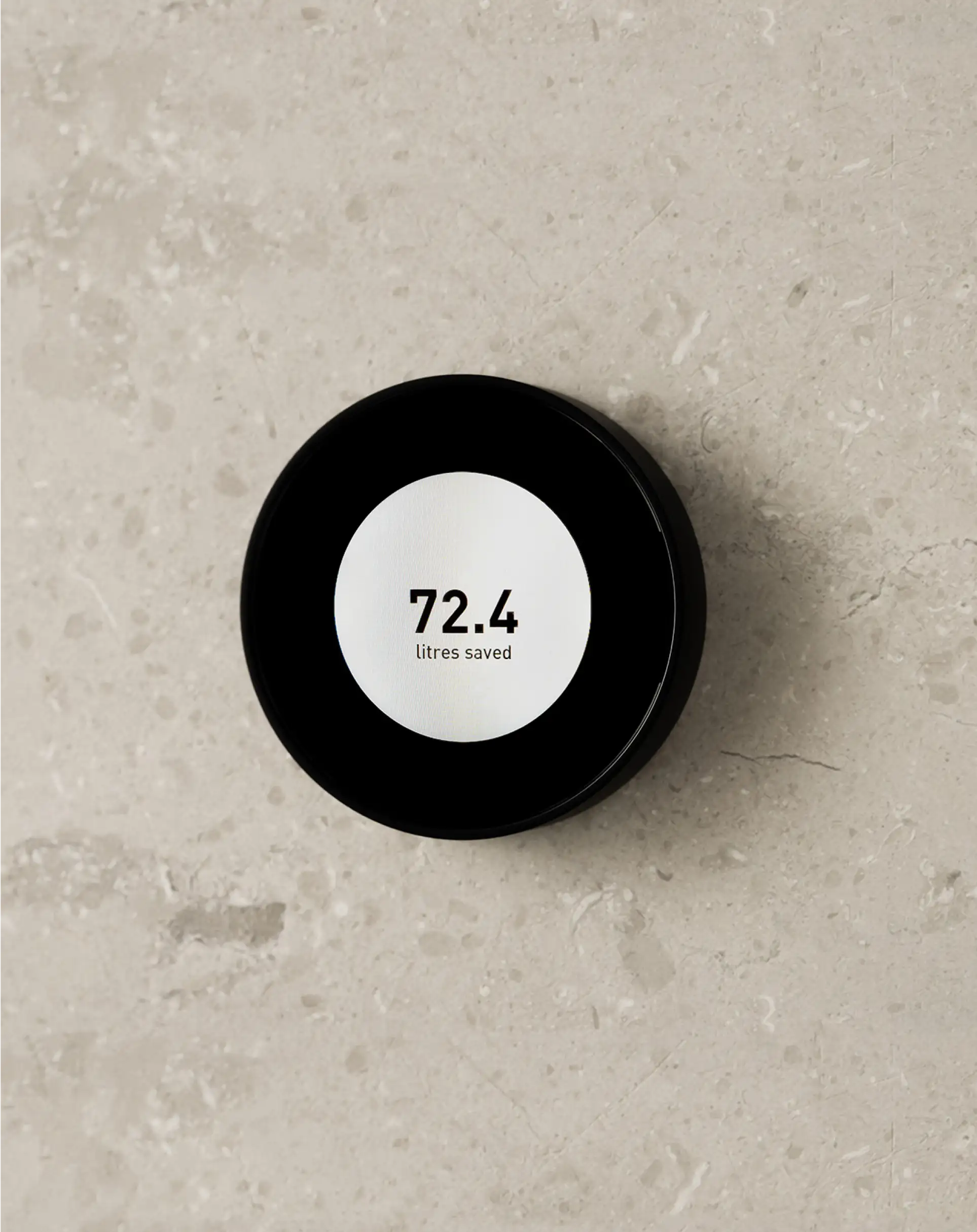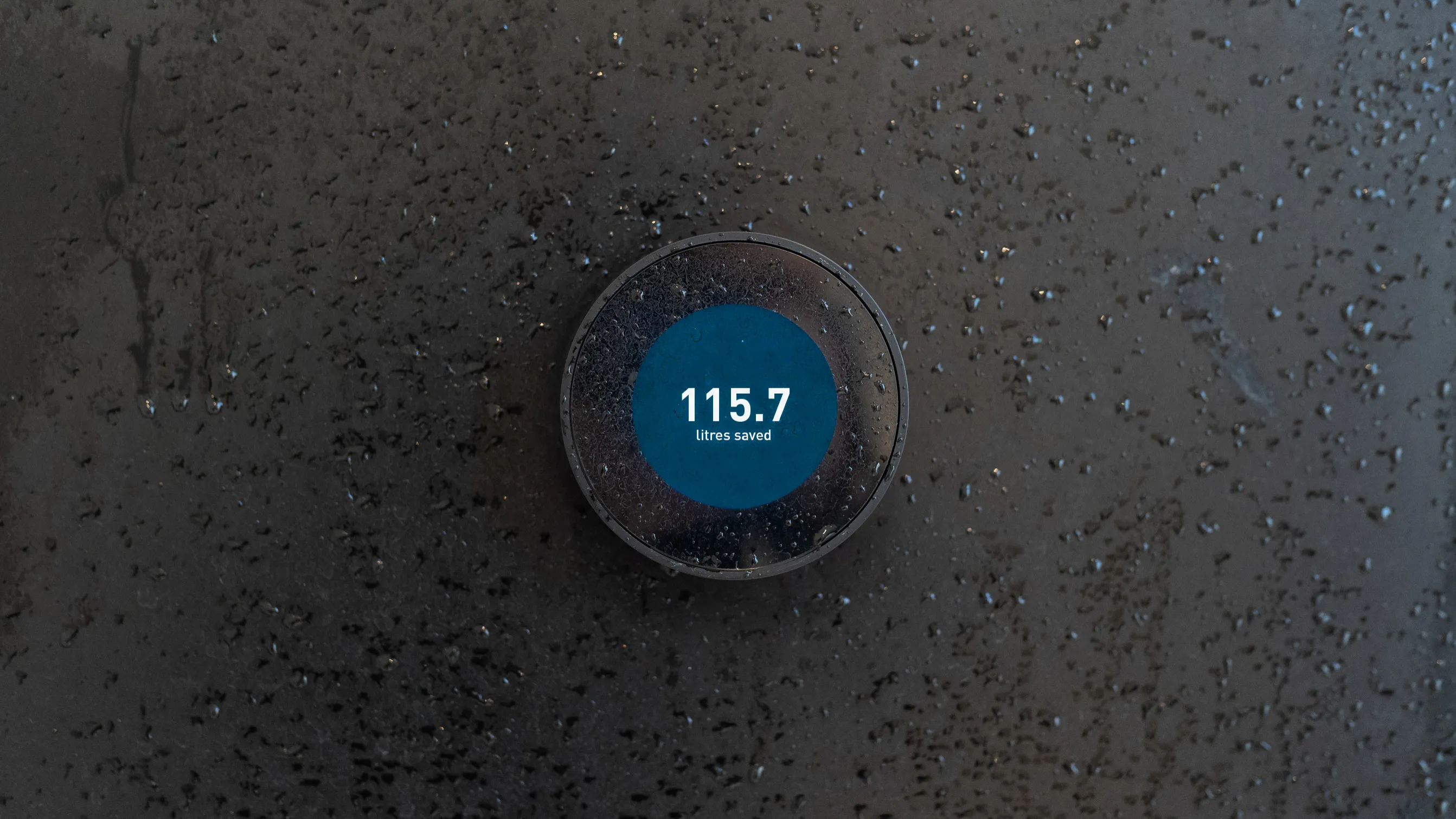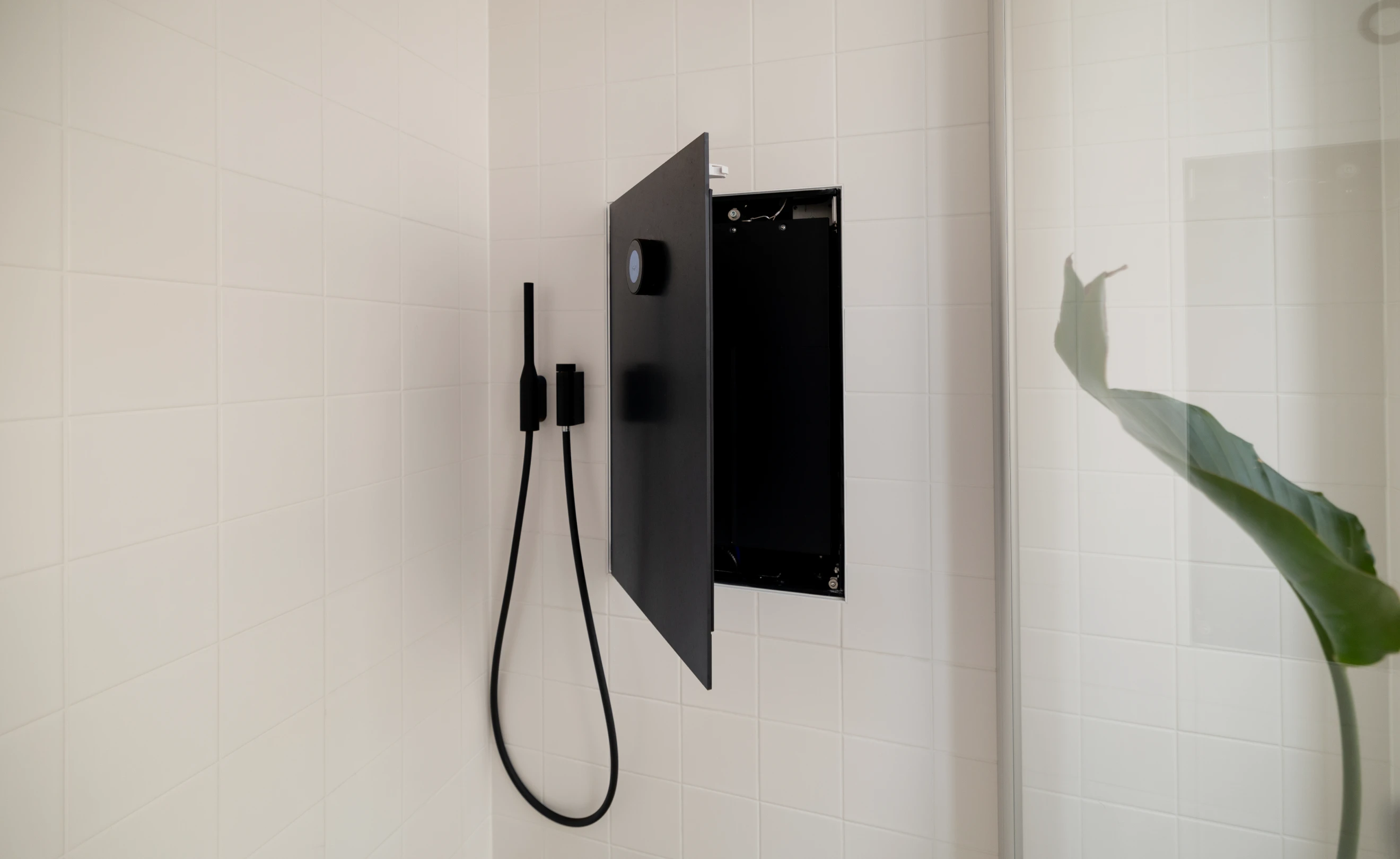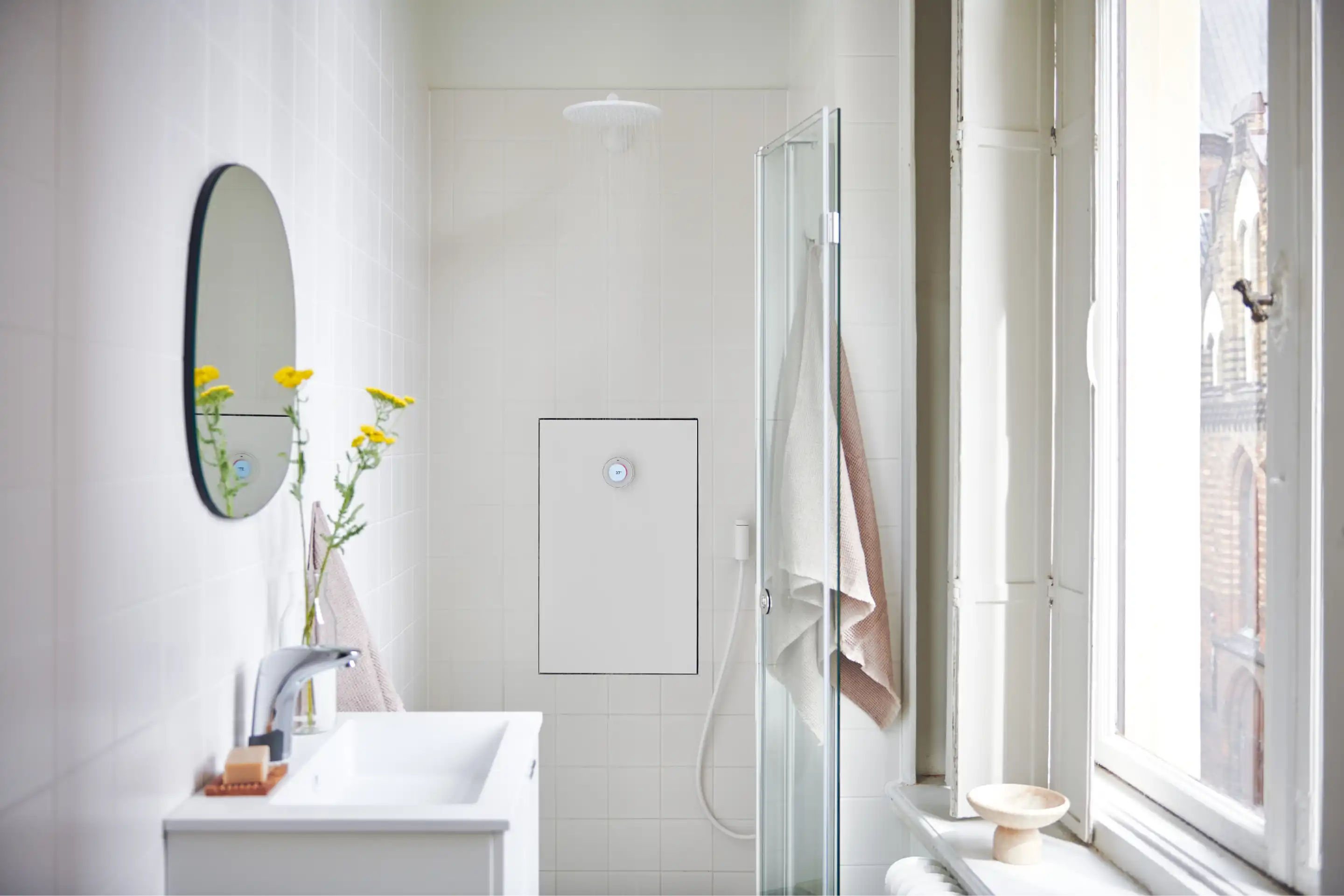




Orbital Shower cleans and recirculates water in real time.
You get a first-class shower experience with precise temperature
and high pressure, while saving water and energy.

Reserve now and choose your specific design before it ships.
The Orbital Shower package includes a shower head, hand shower, hose and diverter, shower drain, Control Dial and our unique Core technology.
Now accepting U.S. and European reservations